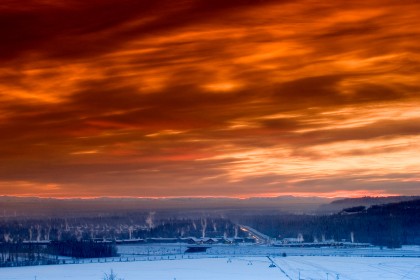
Alaska’s economic success, culture and traditions are rooted in rural Alaska. As Mayor of Anchorage and now as U.S. Senator, I have worked to emphasize the close relationship between urban and rural Alaska. I have brought 11 Cabinet members to Alaska, with nearly all of them traveling to rural communities, including Barrow, Bethel, Dillingham, Kotzebue, Anaktuvak Pass, Kwigillingok and Hooper Bay to see first-hand the opportunities and challenges of rural Alaska.
I supported the American Recovery and Reinvestment Act, because I knew it would bring critical investment to rural Alaska, repairing roads, airports, housing, barge landings and ports. We also invested $100 million to deploy the Terra-SW broadband project to more than 100 villages in Western Alaska and more than $200 million to build a much-needed new hospital in Nome. Altogether, these projects created over 500 jobs in rural Alaska.
Whether its education, healthcare, business development or natural resource policy, I know “one size fits all” policies don’t work in rural Alaska. We must work as a partner to support local needs and ideas to build sustainable, successful rural communities.
I have championed legislation and funding support for successful programs, like Alaska’s tribal health care network, Alaska Native Education Program, 8(a) Native contracting, and the Denali Commission. I’ve also worked to improve tribal justice systems—I have introduced the Alaska Safe Families and Villages Act to create pilot projects with nine Alaska tribes to enhance public safety and strengthen tribal courts.
I am proud to be on the Senate Veterans Committee, where I am able to focus on the needs of America’s rural veterans. One of our first successes in the Senate was restoration of benefits to members of the Alaska Territorial Guard—26 living Alaska Native veterans who served during World War II. I pushed the Department of Veterans Affairs to create the first ever Tribal Advocate and introduced the Alaska Heroes Card Act to allow veterans in roadless areas of rural Alaska to receive care in their community, instead of having to travel sometimes thousands of miles to Anchorage or Seattle.
